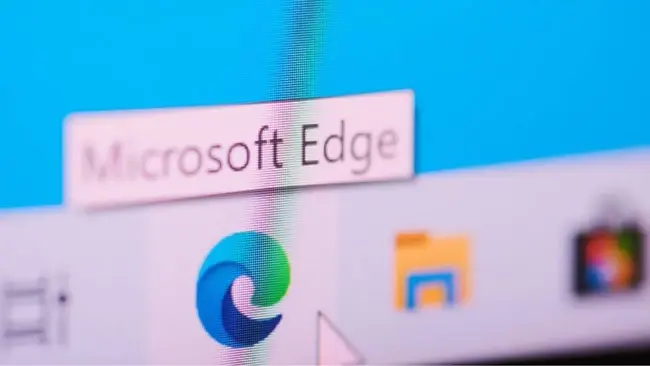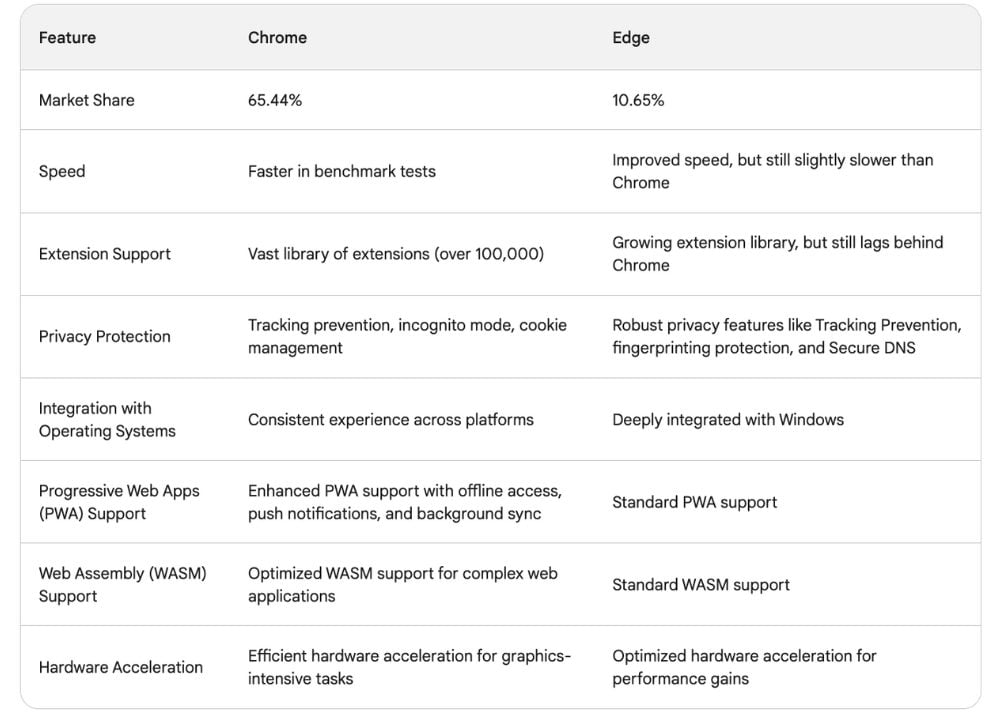Born from the ashes of Internet Explorer, Microsoft Edge entered the browsing scene with the promise of a new and improved search experience. But If you asked anyone today which internet browser they use today, you'd struggle to come across someone who actually uses Edge as their default browser.
Despite Microsoft's efforts to improve the user experience on Edge and gain market share, it remains a relatively unpopular browser compared to other browsers like Chrome and Safari.
In this article, we’ll delve deep into why Microsoft Edge has become so unpopular, exploring the mismanagement, strategic errors and competition that have led to the browser's failure.

Why Microsoft Edge failed before it started
When Edge was unveiled in 2015, it was already behind the competition. Initially built on Microsoft's own proprietary EdgeHTML rendering engine and their Chakra JavaScript engine. Edge was designed to replace Internet Explorer, which had been the default browser for Windows for over two decades.
Edge faced several challenges during its early years. It was instantly criticized for its performance, compatibility with web standards, and limited extension support.
Worse still, many felt as though they were being force-fed Edge. Not only is it already there if you're using Windows, but as a key Windows component, it cannot be deleted.
Users complained Microsoft was 'pushing' Edge onto Windows users and preventing them from removing it from their computers despite setting other browsers as their default.
Chromium-based Edge
In 2019, Microsoft announced a major shift in strategy – it would be abandoning EdgeHTML and adopting the Chromium open-source project as the basis for its new browser.
The decision was seen as Microsoft’s acknowledgement of Edge's weaknesses and lack of features and a recognition it needed to embrace open-source technologies to be competitive.
The new Chromium-based Edge was released in 2020. The browser offered improved performance, better compatibility with web standards, and a wider range of extensions. Microsoft also made Edge available for other platforms, including macOS, Linux, Android, and iOS in a bid to attract more users not using Windows products.
Why Hardly Anyone Uses Microsft Edge
Despite Microsoft's efforts to improve the user experience, Edge still remains a relatively unpopular browser compared to competitors like Safari, Firefox and Chrome.
One major problem for Microsoft Edge is the sheer dominance of Google Chrome on search. While Edge can somewhat match Chrome in its functionality, Google has become the de facto browser for most internet users thanks to its sleek design, rapid performance, and easy integration with Google services.
Microsoft has found itself fighting an uphill battle with Edge as it tries to convince users to switch from a familiar and well-established browser to something completely new despite offering limited features compared to Google.
Chrome vs Edge
Looking at the range of features available with Google’s Chrome and Microsoft Edge individually, it’s clear that Chrome is still miles ahead in terms of ease of use, speed, and performance.
Here is a comparison of the key features of Chrome and Edge:

It’s not just Chrome's faster speeds and better features that make it the preferred browser for people all over the world, however.
Let’s not forget that Google has been in the search business for much longer than Microsoft, and Chrome has amassed a massive dataset of user search queries and click data. This data allows Google to train its algorithms to better understand what users are looking for and to provide more relevant results on Chrome compared to Edge.
Google is also constantly experimenting with new algorithms and techniques to improve the quality of its search results with new technologies such as its Bard AI chatbot. This means that Microsoft Edge is always playing catch-up, and it can be difficult for the browser to keep up with Google's latest innovations.
You’ve also got to remember that 65% of people are already using Chrome, while just 10% use Edge. Most people are also using a range of different Google products, such as Gmail, YouTube and Google Maps, which makes Chrome the most sensible choice for users who are already heavily invested in the Google ecosystem.
Chrome also has a vast library of extensions, with over 100,000 available on the Chrome Web Store. This extensive selection provides users with ample options to customize their browsing experience, ranging from productivity tools to entertainment add-ons. While Edge is expanding its extension library, it still lags behind Chrome in terms of overall quantity and diversity.
Is Edge really that bad?
While Microsoft Edge has made significant improvements in recent years, it still faces some criticism from users. Some say Edge is too confusing, others say it's outdated, and others have bothered using it in the first place.
Here are some of the reasons why people might think Edge is a bad browser:
- The Internet Explorer Legacy: Edge's predecessor, Internet Explorer, was notoriously slow, unstable, and insecure. This legacy has made it difficult for Edge to shake off the perception that it is a bad browser.
- Forced Installation on Windows: When Edge was first released, it was bundled with Windows 10 and pre-installed on all devices. This led to many users feeling like they were being forced to use Edge, which didn't help its reputation.
- Lack of Market Share: Edge has a much smaller market share than Chrome and Firefox, which can make it difficult to find compatibility with certain websites and extensions. This can make users feel like Edge is not a supported or reliable browser.
- Questionable Data Collection Practices: Some users have concerns about Edge's data collection practices, particularly regarding its use of Bing as the default search engine. They believe that Edge collects too much personal information, which can make them hesitant to use it.
- Lack of Unique Features: Edge doesn't have any standout features that make it unique or stand out from other browsers. It's often perceived as a "me-too" browser that doesn't offer anything new or innovative.
Of course, Edge has some advantages of its own. For example, Edge is based on the Chromium open-source project, which means that it is more secure than other browsers like Chrome or Safari.
Edge also has some features other browsers don’t have,, such as the ability to save pages for offline reading and the ability to integrate with Cortana and its ChatGPT-wired Bing AI.
But are these features attractive enough to make people switch to Edge today? Well, no.
The Future of Microsoft Edge
It's important to note that these criticisms are based on outdated perceptions and don't reflect the current state of Edge. And while it may still take some time for Edge to overcome its negative reputation and gain wider acceptance, its future looks promising.
The browser has made significant improvements in recent years, and it is now a viable option for many users.
Microsoft is also committed to investing in Edge's development, and there are a number of reasons to believe that the browser will continue to grow in popularity.
Its recent investment in OpenAI and continued integration of AI in its browser will Bing Chat may also turn the tides for Edge, but time will tell if it is able to implement these features quickly and effectively enough to stay ahead of Google.







Comments ( 0 )